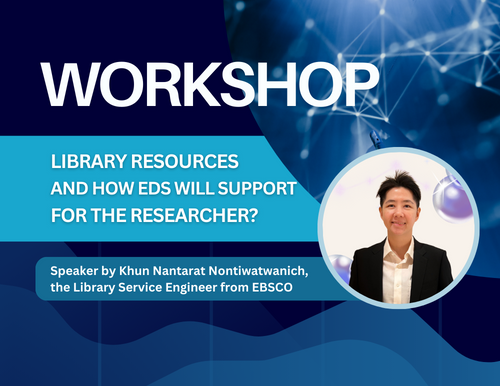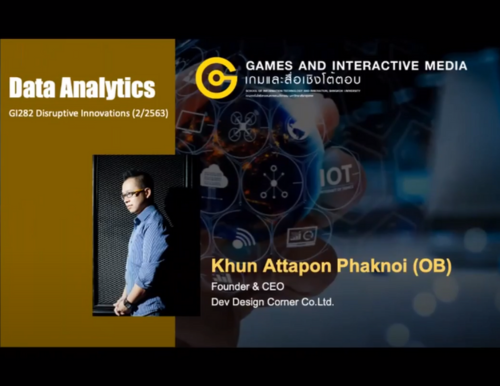The EBSCO database involves searching and accessing high-quality academic articles and research. The steps include targeted searching, reading, downloading, and saving desired articles in the system. Filters and advanced search functions help narrow down results to better match specific needs.
การบูรณาการ SDGs เข้าไปใน ESG Model ทำให้ภาคธุรกิจสามารถดำเนินกิจกรรมที่มีความยั่งยืนและมีผลกระทบเชิงบวกต่อสังคมและสิ่งแวดล้อม ซึ่งช่วยเสริมสร้างภาพลักษณ์ที่ดีและเพิ่มโอกาสในการเข้าถึงแหล่งทุนในระยะยาว โดย ผศ.ดร.กาญจนา ส่งวัฒนา
การบรรยายเกี่ยวกับการใช้ข้อมูลความต้องการของลูกค้า (Customer Insight) นำมาพัฒนาเป็นผลิตภัณฑ์และบริการใหม่ของพฤกษา เพื่อตอบสนองไลฟ์สไตล์ยุคใหม่และเทรนด์ความใส่ใจด้านสุขภาพและการใช้ชีวิตในยุคโควิด โดย Kamolsri Autsawaphakorn
Lao economy, Lao job market & labor law, AEC and labor mobility, demand for talents, get yourself ready and about 108JOB By Keovisouk Dalasane
Lao economy, Lao job market & labor law, AEC and labor mobility, demand for talents, get yourself ready and about 108JOB By Keovisouk Dalasane
Lao economy, Lao job market & labor law, AEC and labor mobility, demand for talents, get yourself ready and about 108JOB By Keovisouk Dalasane
การบรรยายเกี่ยวกับ Workshop and food tasting “Thai kitchen to the world” เปิดประสบการณ์ใหม่ในการทำอาหารไทยกับคอร์สเรียนทำอาหารไทยสุดพิเศษ ที่จะพาทุกคนเรียนรู้ศิลปะและเทคนิคการทำอาหารไทยแบบดั้งเดิม ตั้งแต่ขั้นพื้นฐานไปจนถึงขั้นสูง โดย Chef Vanessa Wu
การบรรยายเกี่ยวกับการวางแผน Influencer Campaign, KOL Planning Workshop, Influencer's Tiers, Consumer journey step,
About Influencer Department โดยคุณพัชรนันท์ ด่านชัย เมื่อวันที่ 20 มีนาคม 2567
This workshop covers advanced searching and the more sophisticated of databases in the EBSCOhost platform. Library Resources, What is EDS and how it works?, Techniques in “Feature & Setting”, How EDS support the researcher. By Nantarat Nontiwatwanich on January 20, 2024
การบรรยายแบบออนไลน์ เรื่อง Data Analytics Trends
โดย Khun Attapon Paknoi, Entrepreneurship and Innovation, Specialist and Researcher, University of London
เมื่อวันที่ 3 มีนาคม 2564
เป็นส่วนหนึ่งของวิชา GI282 Disruptive Innovation ปีการศึกษา 2563







